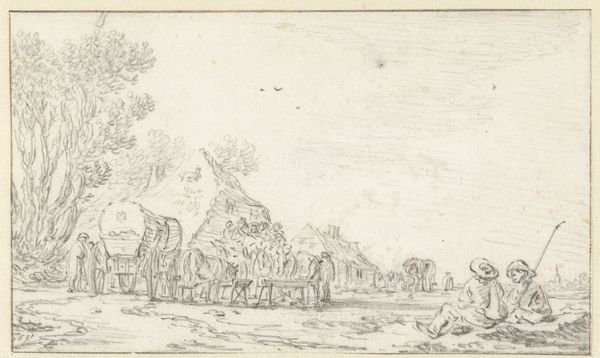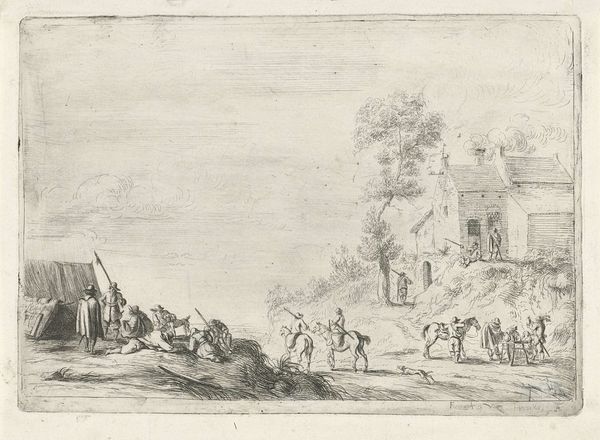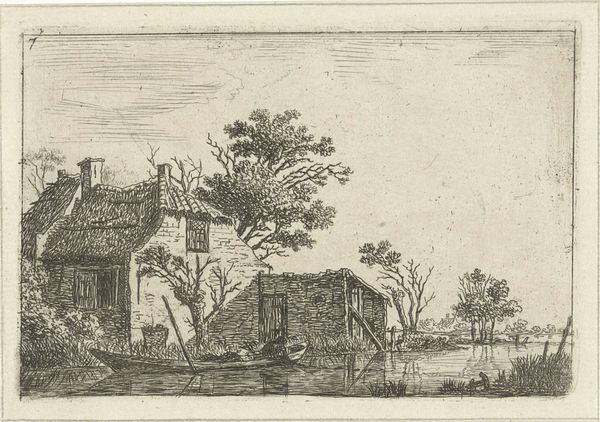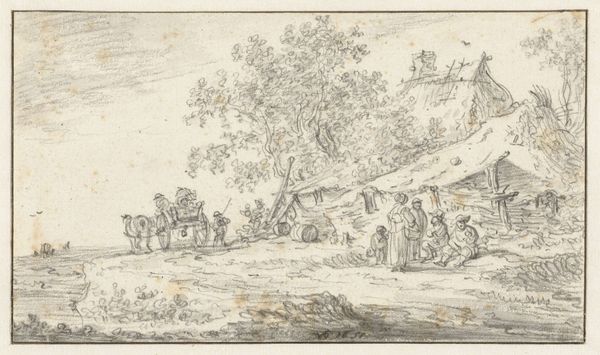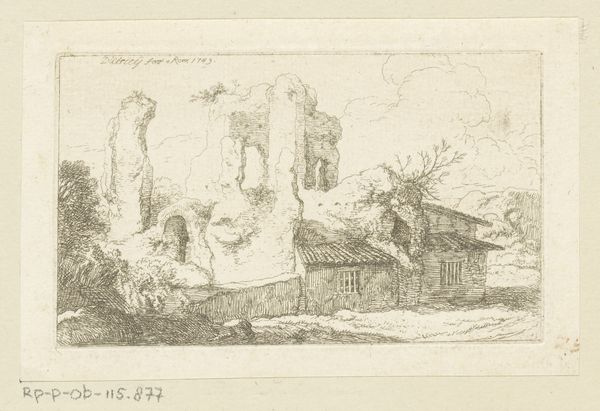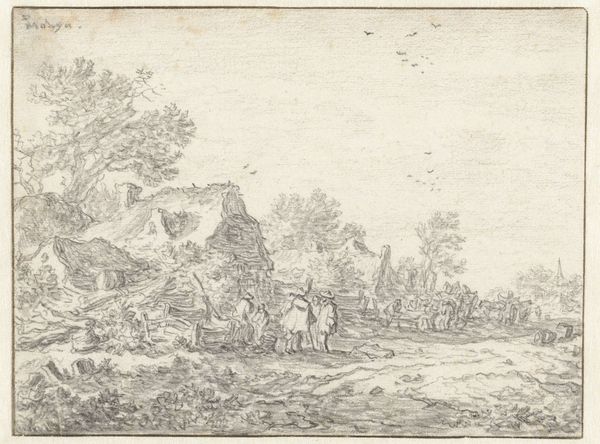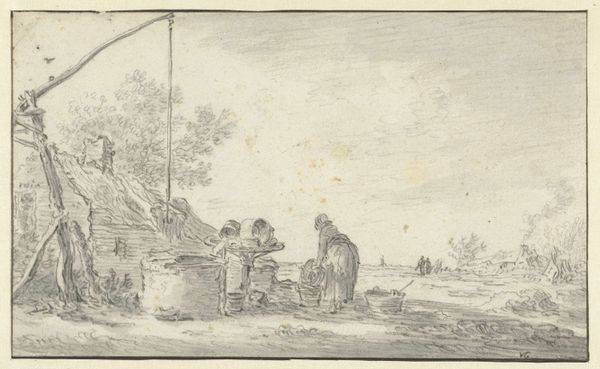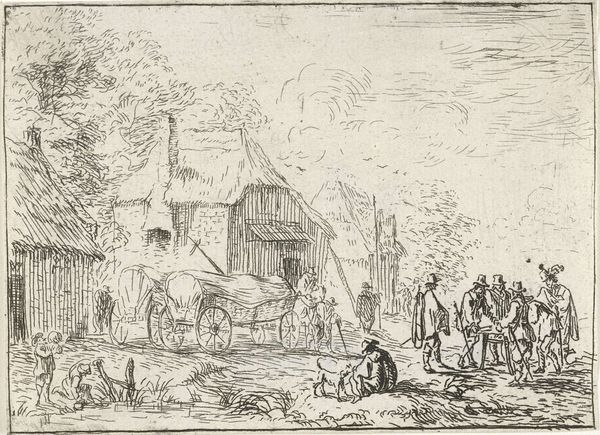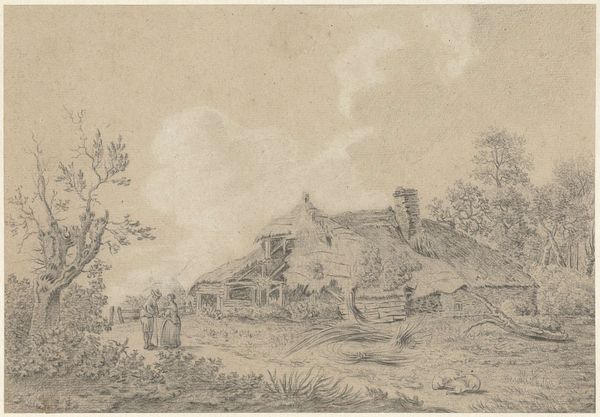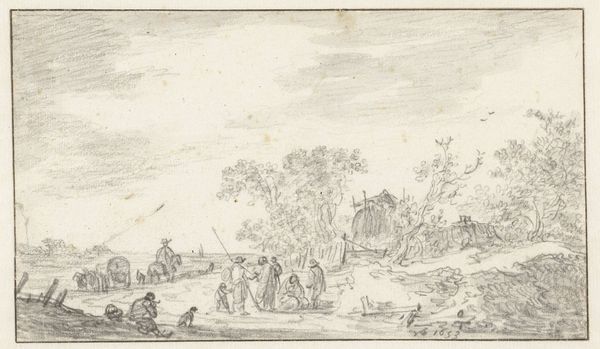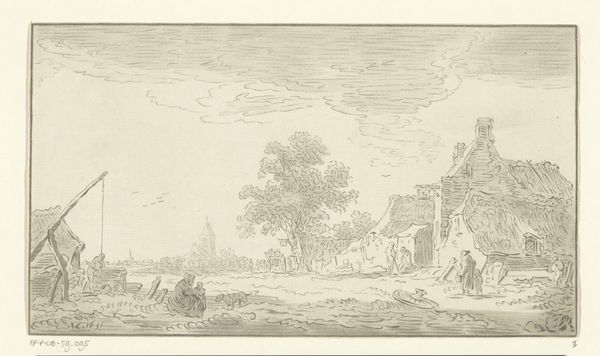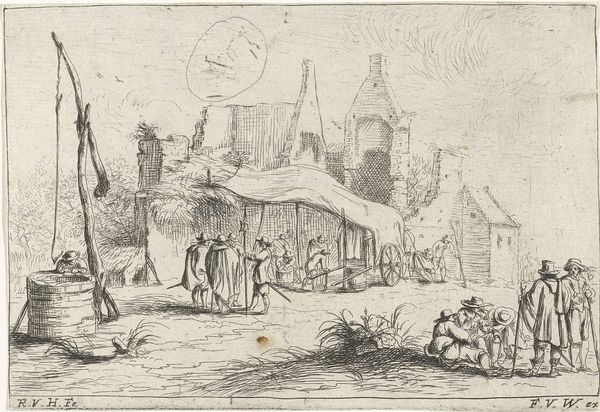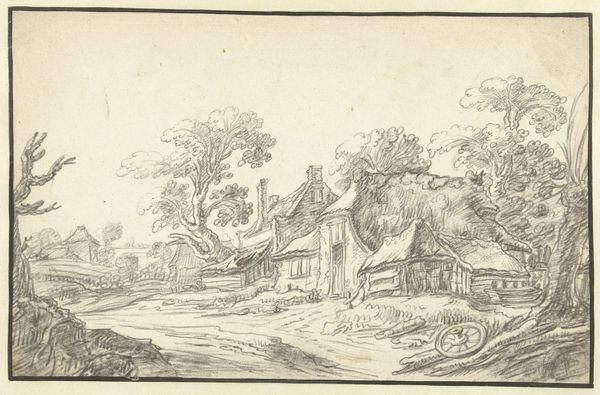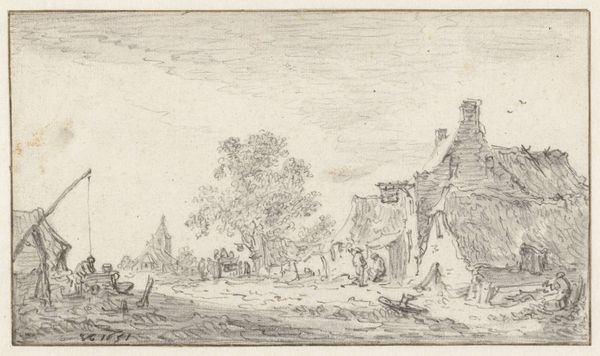
drawing, paper, pencil
#
drawing
#
dutch-golden-age
#
landscape
#
paper
#
form
#
pencil
#
genre-painting
#
realism
Dimensions: height 118 mm, width 189 mm
Copyright: Rijks Museum: Open Domain
Editor: This pencil drawing, “Wagen bij een hutje,” or “Cart by a Hut,” by Pieter de Molijn, was created sometime between 1650 and 1660. I'm really struck by its everyday quality. It feels so grounded, depicting this very ordinary scene of people and a wagon. How do you interpret the image through its historical and cultural lens? Curator: It's precisely that sense of the everyday that makes this drawing so compelling from a historical perspective. During the Dutch Golden Age, there was a growing interest in genre scenes—depictions of ordinary people doing ordinary things. It reflects a shifting patronage, where the rising middle class valued representations of their own lives. Have you noticed how the composition places the viewer at eye-level with these figures? Editor: Yes, and that viewpoint definitely enhances the feeling of being right there, almost like an observer in the 17th century. Curator: Exactly! The drawing also participates in a broader conversation about landscape and the Dutch identity. Unlike idealized Italian landscapes, artists like Molijn focused on the local topography. It’s a way of staking claim to their land and celebrating the virtue of common people. Considering this, where would such artwork hang in the home? Editor: Perhaps in a common living area where everyone can engage with the imagery, celebrating its virtues. That seems more accessible than works of historical mythology meant for a private study. I see the way an art object reflects social change, and that makes history so relevant. Curator: Precisely. It shows how art became a powerful means to shape and mirror a society’s values and self-perception, even in what might seem a humble drawing.
Comments
No comments
Be the first to comment and join the conversation on the ultimate creative platform.
